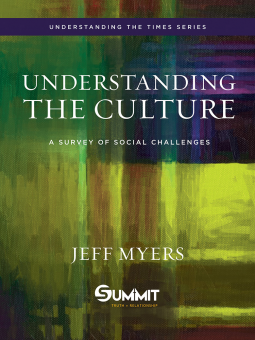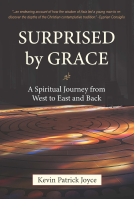
Understanding the Culture
by Jeff Myers
This title was previously available on NetGalley and is now archived.
Send NetGalley books directly to your Kindle or Kindle app
1
To read on a Kindle or Kindle app, please add kindle@netgalley.com as an approved email address to receive files in your Amazon account. Click here for step-by-step instructions.
2
Also find your Kindle email address within your Amazon account, and enter it here.
Pub Date Mar 01 2017 | Archive Date May 01 2017
David C Cook | David C. Cook
Description
Available Editions
| EDITION | Hardcover |
| ISBN | 9781434709899 |
| PRICE | $39.99 (USD) |
| PAGES | 640 |
Featured Reviews
 Robert M, Educator
Robert M, Educator
I got an advanced copy from Netgallery in exchange for a review. Unfortunately I could not finish in time for the book to be released. This is a good thing. It was so deep, rather than skim through it I had to deep read it each chapter.
The book has the feel of a Classroom textbook. It is easy to read but the topics are very deep. There is a clear pattern to each chapter and once that pattern is noticed it does make the reading a little easier.
It is clear that once you get into it, this is a Christian world view book. The name does not give the hint that it would be. I wish I had a copy of it last semester when taking a Philosophy class, a lot of the questions that came up I had a hard time addressing. It would have been good to have this a reference to quote from.
It is the third in a series and I would love to some time invest in the other two. For now, I will have to add them to my want to read list.
Summing it up, it is a great book, but it may not be for everyone.
 Conrade Y, Reviewer
Conrade Y, Reviewer
This book is the third of a trilogy of books about understanding the world we live in. The first is "Understanding the Faith" which deals with a survey of Apologetics, about how we can share the faith with others. It helps us to understand the place of theology and apologetics.The second is "Understanding the Times" which deals with the various popular worldviews existing today. Not only does it help us understand the different religious and existing worldviews, it gives us a chance to appreciate the biblical Christian worldview more. This is the third book which deals with specific topics regarding culture. It deals with common needs that we encounter every day. Topics like:
Technology
Arts and Entertainment
Value of Human Life
Sexuality
Marriage
Creation Care
Politics
Religious Freedom and Persecution
Poverty Care, Poverty Cure
Use of Force
Justice
Community Renewal
The underlying conviction in this book is to equip readers and people with a biblical foundation on theological thought before engaging these cultural forces. It is generally accepted that nobody's perfect but why is that so? How did we become what we are today? What about hope? Is the world getting better or worse? How do we think Christianly about such topics? In order to answer these questions, we need to know what is the truth? We need to make decisions about learning processes and good decisions. We want to care and we want to demonstrate genuine care. In wanting to change the world in any way, we need to be changed first from the inside out. For Myers, it is about caring enough to see the big picture of the world, to learn to see our stories as part of the bigger story. It is about caring for people the way that God cares for them. He defines culture as: "the way of life for a group of people; the culmination of human communication and willful activity in a particular civilization." He gives a scholarly overview of the different ways people see culture. There is Ken Myers's six aspects (artifacts; institutions; practices; beliefs; moods; metabeliefs). There is Richard Niebuhr's Christ and Culture and the five distinct approaches. He also visits the ideas on culture by Augustine, James Davison Hunter, Francis Schaeffer, Andy Crouch, and Kevin VanHoozer. Not only that, Myers deal with an interesting section on Fundamentalism vs Liberalism. Fundamentalism and conservative parties rose out of a reaction against the rise of liberal theology. The more liberal a segment of society becomes or threatens the general public, the harder the push back from the fundamentalists. This pushback also applies to the recent wave of attacks from secularism. Other historical movements include the influences of Moralistic Therapeutic Deism (MTD); Gnosticism; Two-Kingdoms Theology; and many other modern isms. We are created not to grab things for ourselves but to care and share what we have. Ultimately, the questions of life center around five fundamental questions:
Where do we come from? (origin)
Who are we? (identity)
What is real and true, and how do we know? (meaning)
How should we live? (morality)
What happens next? (destiny)
Myers is very ambitious. Before tackling the individual topics, he gives us a historical survey of culture, what it is, how it is shaped, and the role of Christians in the formation of culture. Through it all, he asserts that right belief guides right behaviour. That is why the initial chapters three and four are crucial to the understanding of this book. While it is possible for readers to pick and choose the various topics of interest, fundamental to the book is the understanding of history and the role of faith in the shaping of culture. If we understand the past, we will have a better sense of why things are what they are today. The danger in not learning about our past is that we not only make uninformed judgment about the present, we risk committing the same errors that our ancestors had encountered. This is something that Myers is very conscious about. He brings in a huge library of thinkers, philosophers, theologians, scholars, and other prominent names. Some positive movements that came from Christian circles include the abolition of slavery; initiating the principles of modern charity; modern education; modern faces of human rights for women and children; setting the foundation of the sciences; the shaping of the arts; etc. The plan is to develop a posture of engagement that Christians can constructively work with people in the public square, and to align ourselves with the general biblical story. Christians can shape the community through active engagement and fruitful contribution. We can be a part of the solution and a redemptive arm of God.
We learn to interact best if we learn about what the culture is. It is a superb opportunity to bring witness of Christ to a world that might appear all too familiar to us. This is a big book on an even bigger topic. Culture can seem to mean a lot of different things to different people. Even though the culture at large wants to hurt or impede the Church, the goal for Christians is to engage rather than flee. Myers gives us a lot of good guidance with regard to the many faces of culture. On communications, he offers the eight characteristics of good critical thinking. On speaking, he shows us how to avoid propaganda and manipulation toward persuasion and reasonable dialogue. On technology, we are warned that technology is not necessarily neutral. As long as we are influenced by it (positively or negatively), it is already non-neutral. On arts and entertainment, we are reminded of Christianity's fingerprints in the past on contemporary arts and entertainment, even as secularism continues to dominate headlines. We learn about the sanctity of human life; sexuality; marriage; and many more. Each chapter alone can inspire its own series of lectures and discussions.
Meant as a textbook, this is a valuable resource for teachers and students to learn about how Christians can engage modern culture. Comprehensive in coverage and deep enough for classroom discussions, this book will give various groups a lot to chew on and to think about. I suspect that is not all. Through the examples, readers can apply the same methodologies to other issues that come up from time to time. I strongly recommend this book for any community wanting to engage with modern culture more effectively.
Rating: 5 stars of 5.
conrade
This book has been provided courtesy of David C. Cook Publishers and NetGalley without requiring a positive review. All opinions offered above are mine unless otherwise stated or implied.
Readers who liked this book also liked:
John Kotter; Holger Rathgeber
Business, Leadership, Finance, Nonfiction (Adult)










